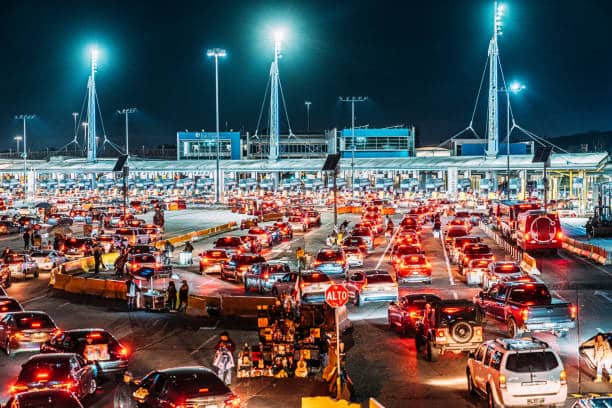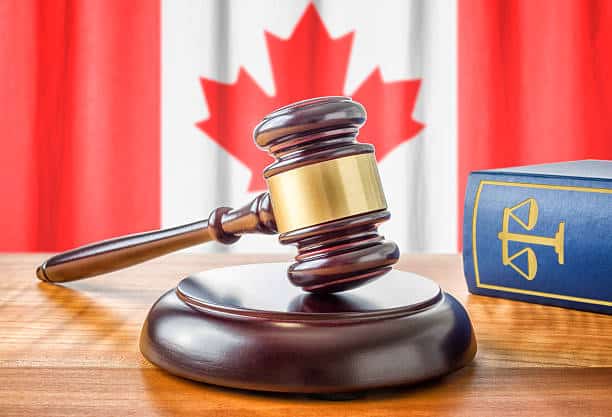If you are new to Canada (or not), and you have suffered an illness or injury that prevents you from working, you may not be aware of the different types of disability benefits available to you.
To help you, we’ve answered some of the most frequently asked questions we hear from our clients. We’ve also included a list of resources if you need help with your disability benefits.
Top SEVEN things every newcomer to Canada should know about disability benefits
-
What should I do if I become disabled from work?
If you become disabled and are unable to work, there are several steps you should take to protect your rights and access available support:
- Notify Your Employer: Inform your employer as soon as possible about your inability to work. This allows your employer to begin the process of providing accommodations or considering other options, such as providing you with the forms to apply for disability benefits.
- Seek Medical Attention: Obtain medical documentation from your healthcare provider confirming your disability and its impact on your ability to work. This documentation may be necessary to support your request for accommodations or to apply for disability benefits.
- Explore Disability Benefits: Investigate the disability benefits available to you, such as those under your employer’s benefit plan, a private disability policy, or under the Canada Pension Plan Disability (CPP-D) or provincial disability benefits programs. Determine eligibility criteria and application processes for these benefits. Keep in mind that there are deadlines for applying.
- Apply for Employment Insurance (EI) Sickness Benefits: If you are unable to work due to illness or injury, you may be eligible for EI sickness benefits, which provide temporary income support. If your employer does not provide short-term disability benefits, apply for EI benefits through Service Canada as soon as possible after you stop working. Then find out if your employer has a long-term disability policy.
- Request Accommodations: If you do not have short- or long-term disability benefits, work with your employer to request reasonable accommodations that will enable you to continue working or return to work in a modified capacity. This may include adjustments to your job duties, work schedule, or workplace environment.
- Explore Re-Employment Options: If you do not have disability insurance and are unable to return to your previous job due to your disability, explore re-employment options within your organization or in other suitable positions. Your employer may have a duty to accommodate you by offering alternative employment, if available.
- Seek Legal Advice: If you encounter challenges in accessing accommodations or disability benefits, consider seeking legal advice from an employment or disability lawyer. They can help you understand your rights and options and advocate on your behalf if necessary.
- Take Care of Your Health: Prioritize your health and well-being as you navigate the process of managing your disability and accessing support. Follow your healthcare provider’s recommendations and seek additional assistance or resources as needed.
- Provide Updates: Keep in touch with your employer, healthcare providers, and support networks for updates and assistance.
By taking these steps, you can better navigate the process of managing a disability from work and accessing the support and resources available to you in Canada.
-
If I am not able to work due to an illness or injury, what income benefits are available?
You may have disability insurance under your employer’s benefit plan or under a disability policy that you purchased privately. You might also have creditor disability insurance for your credit card, line of credit, or mortgage payments. There are also many government benefits that may be available to you, these include:
- Canada Pension Plan Disability (CPP-D): This is a taxable monthly payment available to people who have contributed to the Canada Pension Plan and are unable to work regularly due to a disability.
- Disability Tax Credit (DTC): This is a non-refundable tax credit that helps people with disabilities or their supporting persons reduce the amount of income tax they may have to pay. This credit is available to those who have a severe and prolonged impairment in physical or mental functions.
- Provincial Disability Benefits: Each province in Canada also offers its own disability benefits programs, which may include financial assistance, medical coverage, and other support services. These programs vary by province and may have different eligibility criteria and benefits. This also includes insurance if your disability was caused by a workplace injury.
- Employment Insurance (EI) Sickness Benefits: If you are unable to work due to illness or injury, you may be eligible for Employment Insurance sickness benefits, which provide temporary income support.
- Other Disability Supports: In addition to financial assistance, you may also be eligible for various supports and services, such as vocational rehabilitation, assistive devices, housing assistance, and transportation services.
Eligibility criteria, application processes, and benefits may vary for each benefit, and you should contact your local government offices or visit official government websites for more information and assistance with applying for disability benefits in Canada.
-
Do I have to be a Canadian citizen or resident to be eligible for government funded disability benefits?
In Canada, eligibility for government disability benefits can depend on various factors, including residency status, immigration status, and contributions to certain programs like the Canada Pension Plan. While Canadian citizenship is not always a requirement to apply for disability benefits, eligibility criteria may vary depending on the specific benefit program. For example:
- Canada Pension Plan Disability (CPP-D): You do not need to be a Canadian citizen to qualify for CPP-D, but you must have made enough contributions to the Canada Pension Plan during your working years. You must also meet the medical eligibility criteria for severe and prolonged disability.
- Provincial Disability Benefits: Each province in Canada administers its own disability benefits program, and eligibility criteria may differ. Some provinces may require applicants to be Canadian citizens or permanent residents, while others may have provisions for temporary residents or refugees. It’s essential to check the eligibility requirements specific to the province where you reside.
- Employment Insurance (EI) Sickness Benefits: Generally, to qualify for EI benefits, including sickness benefits, you must have worked and contributed to the EI program. While citizenship is not explicitly required, you must have a valid Social Insurance Number (SIN) and meet other eligibility criteria.
- Other Programs: Eligibility for other disability-related programs, such as the Disability Tax Credit or Registered Disability Savings Plan, may have different requirements. Citizenship or residency status could impact eligibility for certain benefits or tax credits.
Overall, while Canadian citizenship may not always be required. If you are applying for government disability benefits in Canada, you should carefully review the specific eligibility criteria for each program to determine your eligibility based on your residency and immigration status, contributions, and other relevant factors. If you’re unsure, it’s advisable to contact the relevant government agencies or seek assistance from a qualified advisor.
-
How do I apply for disability benefits, and where can I get help?
The following are some general steps to guide you when applying for disability benefits in Canada:
- Gather Necessary Documentation: Review the application forms to understand what information will be needed to support your claim. Gather all the necessary documentation, including medical records, doctor’s reports, test results, and any other documents that support your disability claim.
- Review Eligibility Criteria: Each benefit you apply for may have different requirements regarding residency, contributions, medical eligibility, and other factors.
- Choose the Right Program: Determine which disability benefits you’re eligible for based on your circumstances. In Canada, you may be eligible for federal programs like CPP-D or provincial programs administered by your province or territory. You might also have benefits through your employer’s group benefit plan or under a private policy.
- Contact the Benefit Administrator: Reach out to the person responsible for the disability benefits you are applying for. This could be in Human Resources at your work, Service Canada for CPP-D, or the relevant provincial government office for provincial disability benefits. They can provide guidance on the application process and answer any questions you may have.
- Complete the Application Form: Obtain the application form for the disability benefits program and carefully fill it out. Provide accurate and detailed information about your disability, medical history, employment history, and other relevant details. Ensure that you include all required documentation with your application. You can attach additional pages if you need more space to answer the questions.
- Submit Your Application: Once you’ve completed the application form and gathered all necessary documents, submit your application to the benefit administrator according to their instructions and within the deadlines provided.
- Follow Up on Your Application: After submitting your application, follow up with the benefit administrator to confirm receipt and inquire about the status of your application. Be prepared to provide additional information either in a telephone call or from your doctors, or attend medical assessments if requested.
- Wait for a Decision: The processing time for disability benefits can vary depending on the program and individual circumstances. Be patient and wait for a decision on your application. You may receive notification of approval, denial, or requests for further information.
- Appeal if Necessary: If your application is denied, you have the right to appeal the decision. Follow the appeals process outlined by the program administrator, which may involve providing additional evidence or attending an appeal hearing.
- Seek Assistance if Needed: If your disability benefits are denied or terminated or if you encounter challenges or have difficulty navigating the application process, consider seeking assistance from a disability advocate, legal aid clinic, or social service organization. They can provide support and guidance throughout the application process.
-
Can I leave Canada while I am receiving disability benefits?
If you are receiving disability benefits in Canada, under your employer’s benefit plan, Canada Pension Plan Disability (CPP-D), or a provincial disability benefit program, whether you can leave the country while receiving these benefits depends on several factors:
Types of Disability Benefits: Different disability benefits may have different rules regarding travel outside of Canada. It’s essential to check the specific rules and regulations of the program you are receiving benefits from.
- Duration and Purpose of Travel: You may be allowed to travel outside of Canada temporarily while receiving disability benefits, as long as the duration and purpose of your travel are within the benefit guidelines. For example, you may be permitted to travel for medical treatment or for short vacations. Normally, a condition of travel is that you continue to receive treatment while you are away and that you do not miss any appointments as a result of your travel.
- Reporting Requirements: For some disability benefits, you may be required to inform them if you plan to travel outside of Canada, especially if the trip is for an extended period. Failure to report your travel could result in the suspension or termination of your benefits.
- Residency Requirements: Certain disability benefits may have residency requirements, meaning you must continue to reside in Canada to remain eligible for benefits. If you plan to move or live outside of Canada permanently, you may no longer qualify for benefits.
- Impact on Benefits: Leaving Canada could potentially impact your eligibility for certain benefits or the amount of benefits you receive. For example, if you receive CPP-D benefits and move to a country where Canada does not have a social security agreement, your benefits may be affected.
- Social Security Agreements: Canada has social security agreements with some countries that allow individuals to receive Canadian benefits while living abroad. If you plan to move or travel to a country with which Canada has such an agreement, you may still be eligible to receive your disability benefits.
Be sure to review the terms and conditions of your disability benefits and consult with the benefit administrator or a knowledgeable advisor to understand how travel outside of Canada may affect your benefits. Providing accurate information and following reporting requirements can help ensure that your benefits continue uninterruptedly while you’re not in Canada.
-
Can my employer terminate my employment if I can not work due to disability?
In Canada, employers are prohibited from terminating an employee solely because they have become disabled. Doing so would likely constitute discrimination under various federal and provincial human rights laws.
Under the Canadian Human Rights Act and provincial human rights legislation, employers are required to accommodate employees with disabilities, unless doing so would cause undue hardship to the employer. Accommodations may include modifications to the job duties, workplace environment, or work schedule to enable the employee to perform their job despite their disability.
It’s important for both employers and employees to understand their rights and obligations under applicable employment laws and for you to seek legal advice if there are concerns or disputes related to disability accommodations or termination.
-
Who can I contact if I need help with my disability benefits?
Please keep in mind that every situation is different and the information provided here is general information and not meant to be legal advice. It is best to consult a lawyer, disability advocate, or immigration consultant if your disability claim has been denied.
If you need help with your disability claim, we suggest the following resources:
Disability Insurance Law Firm:
Mulqueen Disability Law
We provide assistance with your short term or long term disability claim under your employer’s group benefit plan or under your private insurance policy. We have focused on litigating disability insurance claims for nearly 25 years. Our team has “insider” experience from working for the insurance companies we now sue. We offer free consultations and we are a trauma-informed legal service provider. See our Guides for Applying for Disability Benefits and for CPP Disability.
Immigration Issues:
Doherty Fultz Immigration
At DFI, Cassandra Fultz specializes in immigration cases pertaining to Procedural Fairness Letters (PFL), Study Permits, PR Card Renewal on Humanitarian and Compassionate Grounds, Criminal Rehabilitation, Temporary Resident Permits, Canadian citizenship, Family Sponsorship, and Visitor Visas. She has advocated for her clients with an impressive success rate, including for applications with prior refusals. Cassandra is dedicated to providing straightforward and easy-to-understand immigration advice in order to help clients plan for their futures in Canada.
Employment Law Firm:
Appiah Law
Supporting employees at all stages of their employment relationship, from recruitment to separation. We also manage challenging or even unhealthy workplaces. When it’s necessary for our clients to take assertive action to enforce their rights, we represent them in negotiations or litigation.
Information and Applications for Government Disability Benefits:
Service Canada
Provincial Disability Benefits Finder
Your Local Legal Aid Clinic
Your Provincial Law Society Referral Service
Book Appointment













